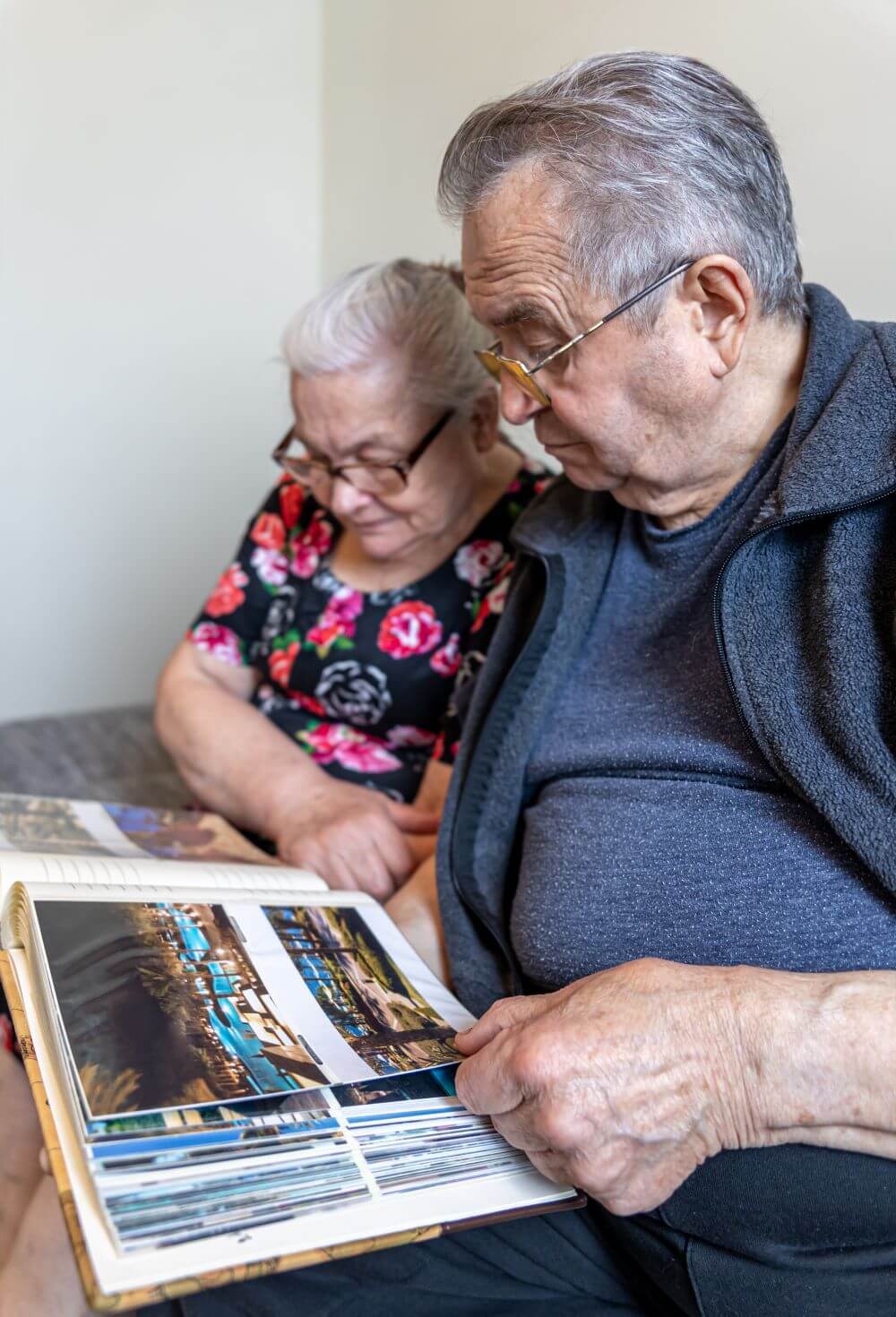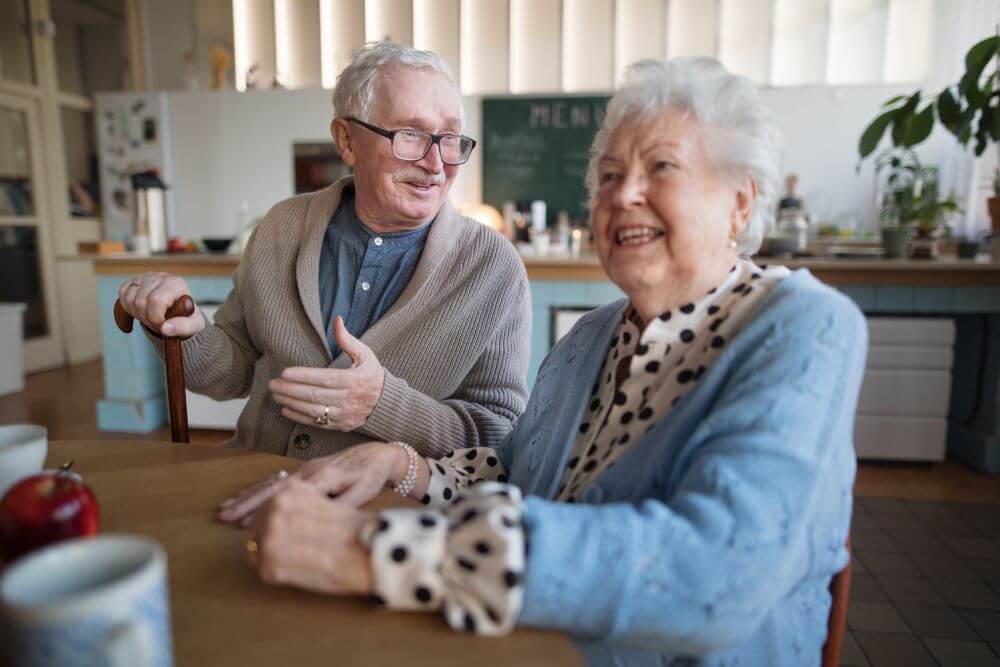
When someone you love has dementia, it’s hard to know how to navigate the emotional ups and downs that come with the disease. The dementia battle often erases memories, alters personalities, and challenges communication. This can be especially difficult for family members, who find themselves fighting a constant battle between wanting their loved one to remain the person they’ve always known and accepting the changes brought by dementia.
My friend Pat faced this struggle firsthand. She had been married to her husband for over 50 years when he was diagnosed with dementia. For years, Pat would ask him countless questions, hoping to spark his memory or get him to respond the way he used to. “Don’t you remember when we did this?” she would ask. Or “Don’t you remember when you said this?” These moments often ended in frustration for both of them. Pat was upset because her husband couldn’t answer, and he grew confused and agitated because he no longer had the ability to recall these memories.
It wasn’t until he was placed in hospice care that Pat had a significant shift in how she approached their time together. She finally stopped expecting him to respond in the way she wanted and began focusing on making their visits more peaceful and enjoyable. This article is a reflection on that journey—a lesson for caregivers everywhere on the importance of choosing your battles and changing your expectations as dementia progresses.

The Challenge of Expectations in Dementia Care
When someone close to you has dementia, it’s natural to want to cling to the person they were. You might find yourself constantly asking questions that begin with “Don’t you remember…?” or trying to correct their confusion about something they once knew. But as the disease progresses, these questions and corrections often do more harm than good.
Caregivers may experience frustration because their loved one can no longer respond in the same way they used to. The person with dementia may become agitated because they don’t understand what’s being asked or why they can’t recall something that seems important. This back-and-forth can create an environment filled with stress, tension, and hurt feelings.

Adapting Your Communication
One of the most important lessons Pat learned in her journey was the need to adapt her communication style. Dementia affects a person’s ability to communicate, remember, and respond appropriately. This decline in cognitive function can leave the caregiver feeling lost and unsure of how to connect with their loved one.
Here are some key ways to adjust communication as dementia progresses:
-
Avoid asking questions that require memory recall. For someone with dementia, recalling specific details, such as past events or conversations, can be difficult or even impossible. Instead of asking, “Do you remember when we went to the beach?” try making statements like, “We had such a wonderful time at the beach.”
-
Focus on the present. People with dementia often retain better memory of the distant past than the present, but they may also struggle with short-term memory. Shift your conversations to what’s happening in the moment, such as commenting on the weather, talking about a current TV show, or engaging in simple activities like looking through a photo album together.
-
Use positive body language and tone. Since verbal communication becomes harder, non-verbal cues take on greater significance. Smiling, holding their hand, and speaking in a calm, gentle tone can convey love and comfort even when words fail.
-
Limit correcting or disagreeing. If your loved one says something that’s not accurate or confuses past events, gently redirect the conversation rather than correcting them. Arguing or correcting can create frustration and anxiety for both parties.

Letting Go of the Need for Answers
One of the hardest things for Pat was letting go of the need for her husband to remember things and respond to her questions. For years, she clung to the hope that by asking the right question or prompting a specific memory, he would “snap out of it” and engage with her as he once did. But eventually, she realized that this approach only led to disappointment.
Pat’s turning point came when she accepted that her husband wasn’t capable of answering the questions she was asking. She stopped expecting him to recall memories or respond in the same way he used to, and instead, she focused on simply being present with him. This change in mindset brought them both more peace and allowed them to enjoy their time together in a more meaningful way.

Creating Peaceful Moments
Caregiving for a person with dementia is emotionally draining, but one of the greatest gifts you can give yourself and your loved one is the creation of peaceful moments. These moments can replace the stress and frustration that often comes with caregiving and help build positive memories despite the challenges.
Here are some ways to foster more peaceful and meaningful visits:
- Shift focus to the present moment. Instead of trying to stir memories, talk about what is happening now. For example, discuss a pleasant scene outside the window or share how a family member is doing today.
- Incorporate sensory experiences. Music, touch, and smell can be powerful tools for connection. Play music they love, offer hand massages with soothing lotions, or bring familiar scents like lavender or a favorite cologne.
- Engage in activities that bring joy. Simple activities such as watching birds, flipping through old photos, or even just sitting together in silence can create moments of connection.
- Practice patience and kindness. Be patient with your loved one and yourself. There will be moments of frustration, but choosing to react with kindness rather than impatience can help create a more peaceful environment. Learn more about developing patience HERE.
Making the Most of Time Together
As Pat shifted her approach, she found that she was able to enjoy her visits with her husband so much more. Rather than becoming frustrated by his inability to answer questions, she focused on sharing stories about her day or reminiscing about the past without expecting him to respond. She brought him familiar items like photo albums, read to him, and played his favorite music. By choosing not to engage in battles over his memory, she created more moments of connection and peace.
Here are a few ways caregivers can maximize the quality of their time with a loved one:
-
Stop asking questions the person can’t answer. This simple change can drastically reduce stress for both you and your loved one.
-
Talk about topics that don’t require memory. Discuss things happening around you or engage in pleasant conversation without the need for back-and-forth dialogue.
-
Find joy in small moments. Sometimes, simply being together is enough. Focus on the positive moments, no matter how small.

Reducing Stress for Both Caregiver and Loved One
When caregivers choose to adapt their interactions and “pick their battles,” they create a more peaceful environment for everyone involved. Pat found that by focusing on the present and letting go of her need for her husband to remember, she was able to reduce the stress and frustration they had both been feeling. Their visits became more enjoyable, filled with love and peace rather than tension.
This shift can bring about a profound change in the caregiver’s experience, helping them create better memories and strengthening the emotional connection with their loved one, despite the progression of dementia.
Conclusion
Dementia is a journey that requires patience, adaptability, and love. Choosing your battles—knowing when to let go of the need for answers and focusing on peace rather than frustration—can create more meaningful and fulfilling moments with your loved one. It’s never too late to change the way you approach caregiving. By making these small shifts, you can bring more peace into your relationship and cherish the time you have left together.









0 Comments